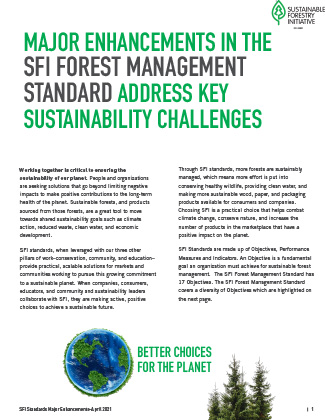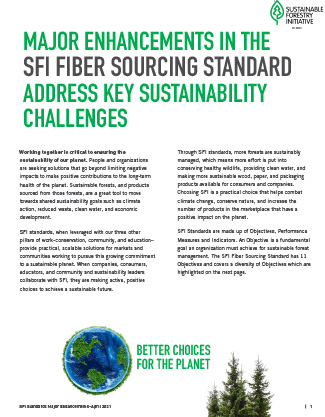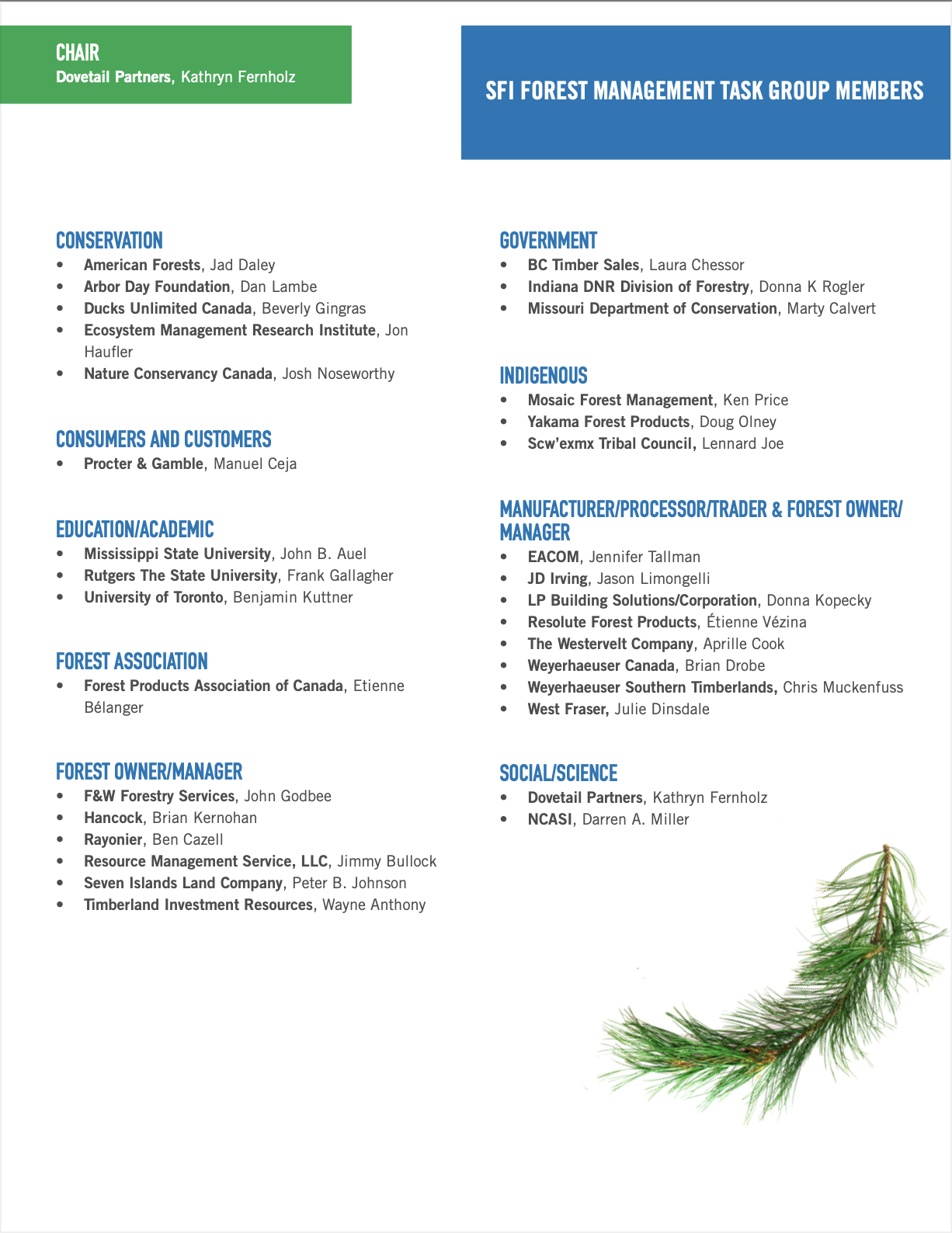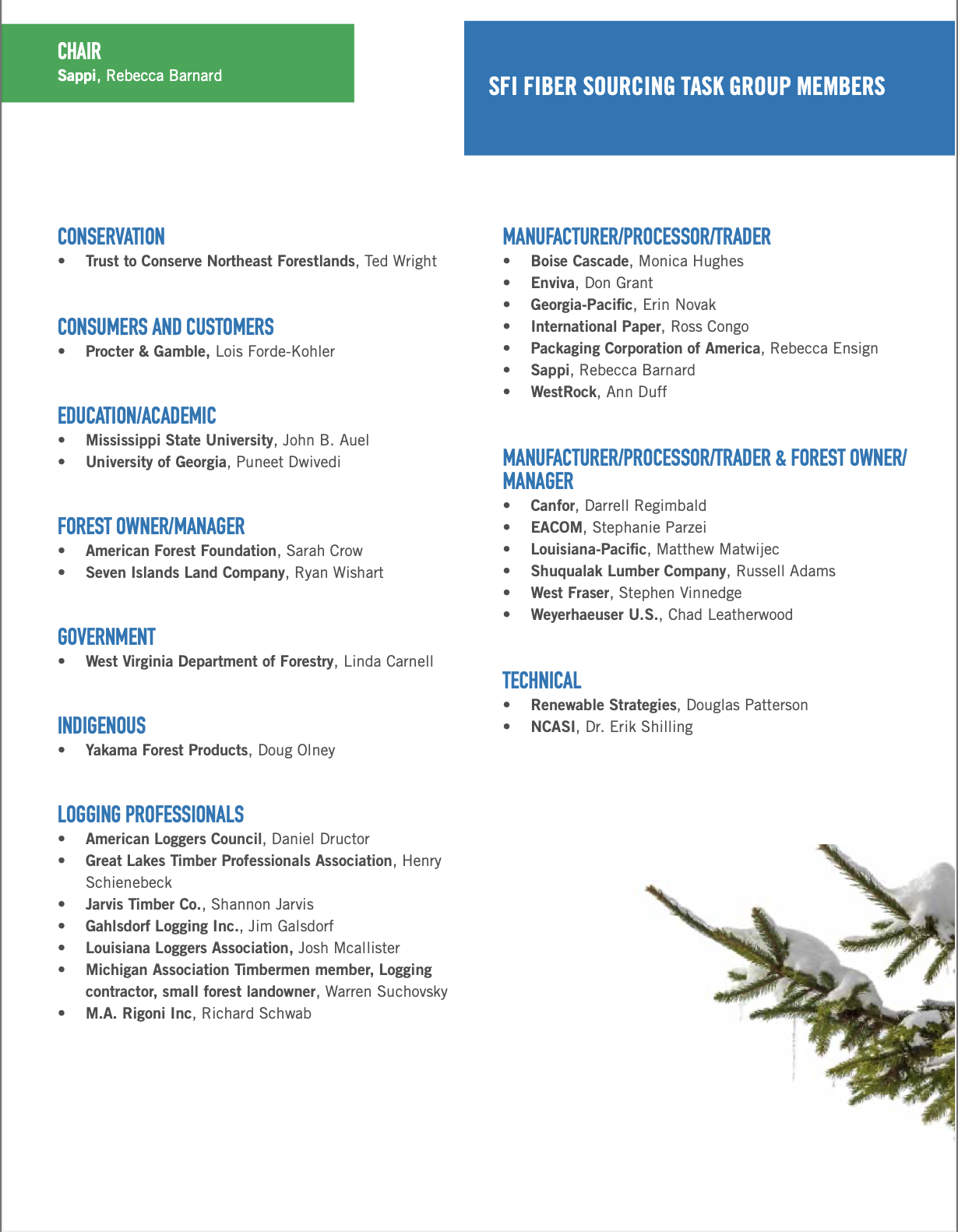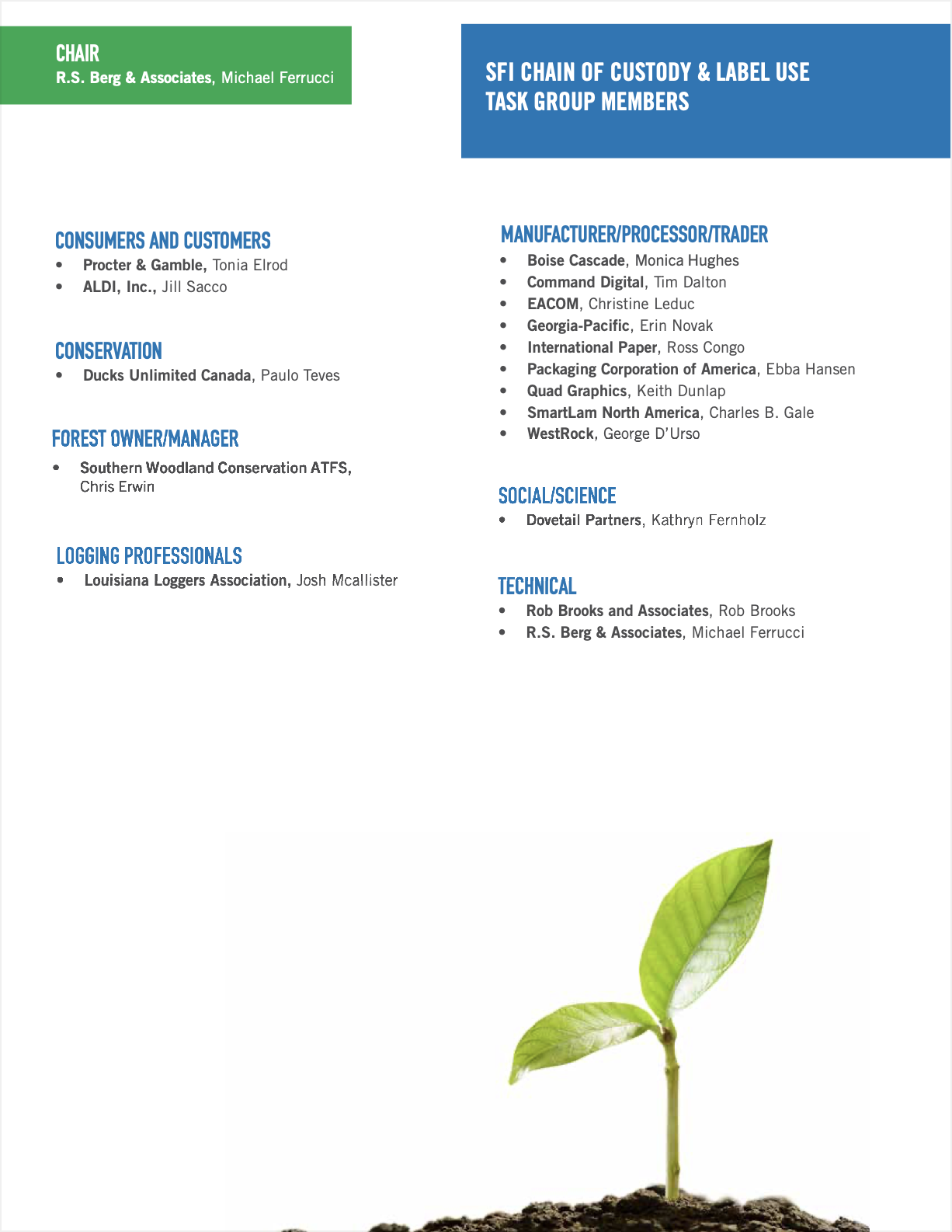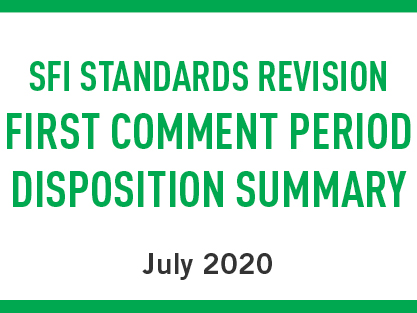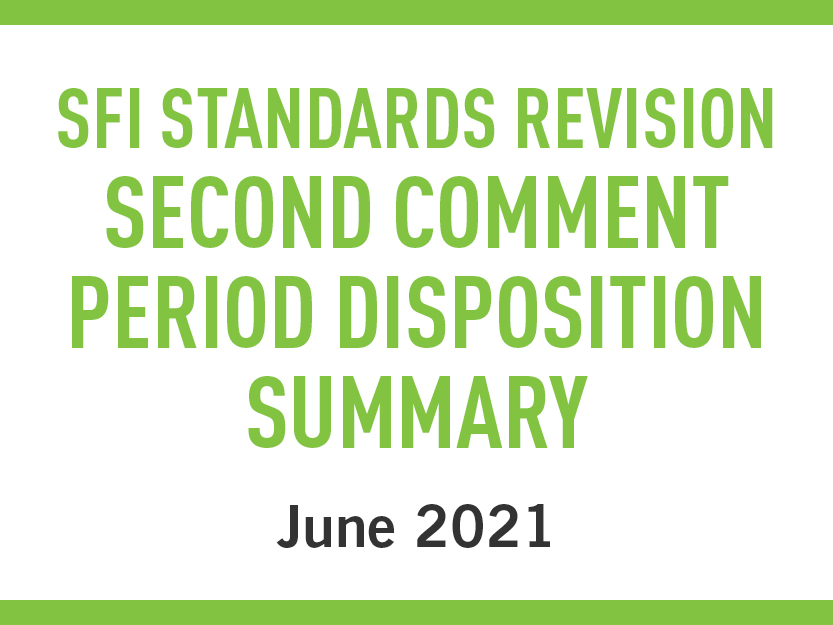SFI 2022 STANDARDS AND RULES REVISION PROCESS
SFI’s mission is to advance sustainability through forest-focused collaborations. As part of the collaborative process, SFI invites everyone to participate in the SFI Standard Development and Revision process.
The SFI standards revision process ensures credibility and transparency allowing everyone to participate. Broad involvement from the conservation community, the forest products industry, brand owners, private forest landowners and public forest managers, government agencies, trade associations, landowner associations, academia, and others is integral to the development of the next SFI standards. The online public comment period is part of this process.
The SFI standards revision process follows international standard development guides and is based on principles of stakeholder engagement, balanced representation, consensus, continual improvement and transparency. The SFI standards revision process is an opportunity to update the SFI Standards and Rules with the topics that matter globally using SFI-certified organizations as a driving force to address these important issues through responsible, science-based forest management.
WORKSHOPS
SFI’s mission is to advance sustainability through forest-focused collaborations. As part of the collaborative process, SFI invites everyone to participate in the SFI Standard Revision process.
These May/June webinars were opportunities to comment on proposed revisions and enhancements to the SFI standards and ran parallel to the second public comment period May 1 – June 30, 2020. All SFI standards and guidance documents are available for comment. All comments and discussion during the webinars were considered by the Task Groups.
These dedicated webinars focused on specific themes and requirements in the SFI Standards Revision Task Groups. Webinar recordings are available at the links below:
- Introduction of the New Draft Standards – Access the recording here
- Logger Training and Education – Access the recording here.
- French Translation – Introduction of the New Draft Standards – Access the recording here.
- Climate Change Mitigation and Adaptation – Access the recording here.
- Conservation of Biological Diversity – Access the recording here.
- Chain of Custody, SFI Labels and Claims, and Controversial Sources – Access the recording here.
- Indigenous Perspective – Access the recording here.
- Urban Forestry – Access the recording here.
- Recap Webinar – Access the recordings here.
- Enhancements Update – Access the recording here.
TASK GROUPS
SFI Standards Revision Task Groups review all comments and develop the draft standards. The Task Groups are established for the duration of the standard revision until completion in 2021. There are three SFI Task Groups:
SFI Forest Management Task Group
(Section 2)
SFI Fiber Sourcing Task Group
(Section 3)
SFI Chain-of-Custody Task Group
(Sections 4 and 5)
The SFI standards revision process is based on balanced representation from many different interest groups. This inclusion is also reflected in Task Group composition reflecting a diversity of interest groups as well as a balanced representation of expertise, gender and geographical location. Examples of interest groups part of the standard revision process include:
Forest owner/manager
Manufacturer/processor/trader of forest-based products
Conservation organization
Customers and consumers
Scientific and technological community
Logging professionals
Workers and trade unions
Indigenous Peoples
Government
Education/academic group
Social-purpose organization
TASK GROUP RESPONSIBILITIES
Task Group members are expected to participate in the following tasks, under the direction of the respective Task Group Chairs:
- Review submitted comments from public comment periods and Standard Revision Workshops that correspond to each Task Group’s focus area.
- Prepare revised Standards text (first and subsequent drafts) for review by the SFI Resources Committee, incorporating their feedback as required.
PUBLIC COMMENTS
The standards revision process ensures credibility and transparency allowing everyone to participate. Broad involvement from the conservation community, Indigenous communities, forest products industry, brand owners, private forest landowners and public forest managers, government agencies, trade associations, landowner associations, academia and others is integral to the development of the next SFI standards. The online public comment period is part of this process.
There are two public comment periods. The first comment period on the 2015-2019 Standards and Rules ran from October 23 – November 22, 2019. The second comment period on the revised SFI standards runs for 60 days through May 1 – June 30, 2020. All SFI standards and guidance documents are available for comment.
About the SFI Task Groups
The SFI Standard Revision Task Groups will consider all feedback from the public comment periods and the SFI Standard Revision Workshops.
About the SFI Resources Committee
The SFI Resources Committee is required to consider all feedback from the public comment periods and workshops.
About the ERP
All comments are also reviewed by the SFI External Review Panel (ERP) who assesses how all comments have been addressed.
About the SFI Board
The SFI Board of Directors considers and approves the SFI standards.
SFI FOREST MANAGEMENT STANDARD
SFI FIBER SOURCING STANDARD
SFI ON DEFORESTATION/FOREST DEGRADATION
SFI CHAIN-OF-CUSTODY STANDARD
SFI CERTIFIED SOURCING STANDARD
SFI INDIGENOUS PEOPLES AND FAMILIES MODULE
SFI SMALL LANDS GROUP CERTIFICATION MODULE
SFI 2022 STANDARDS AND RULES (COMPLETE)
INTERPRETATIONS ON THE SFI 2022 STANDARDS AND RULES
SFI 2022 STANDARDS AND RULES REVISION PROCESS
CONFLICT TIMBER — RUSSIA AND BELARUS
Labels and Certification
Zachary Wagman
Senior Manager, Market Access
Tel: 613-745-3706
Program Participant Relations & SICs
Gordy Mouw
Director, Network Relations
Tel: 715-220-4132
Standards and Customer Affairs & Branding
Jason Metnick
Senior VP, Customer Affairs
Tel: 602-374-6539
Rachel Dierolf
Senior Director, Technical Operations & Reporting
Tel: 613-274-0124
FEATURED ARTICLE
NEW FOREST CERTIFICATION STANDARDS OFFERS NATURE-BASED SOLUTIONS TO THE CLIMATE CRISIS
The Sustainable Forestry Initiative’s (SFI) updated forest certification standards provide solutions to some of the world’s most pressing sustainability challenges. Sustainable forest management and the procurement of wood products from sustainably managed sources are critical tools that help avoid deforestation.
